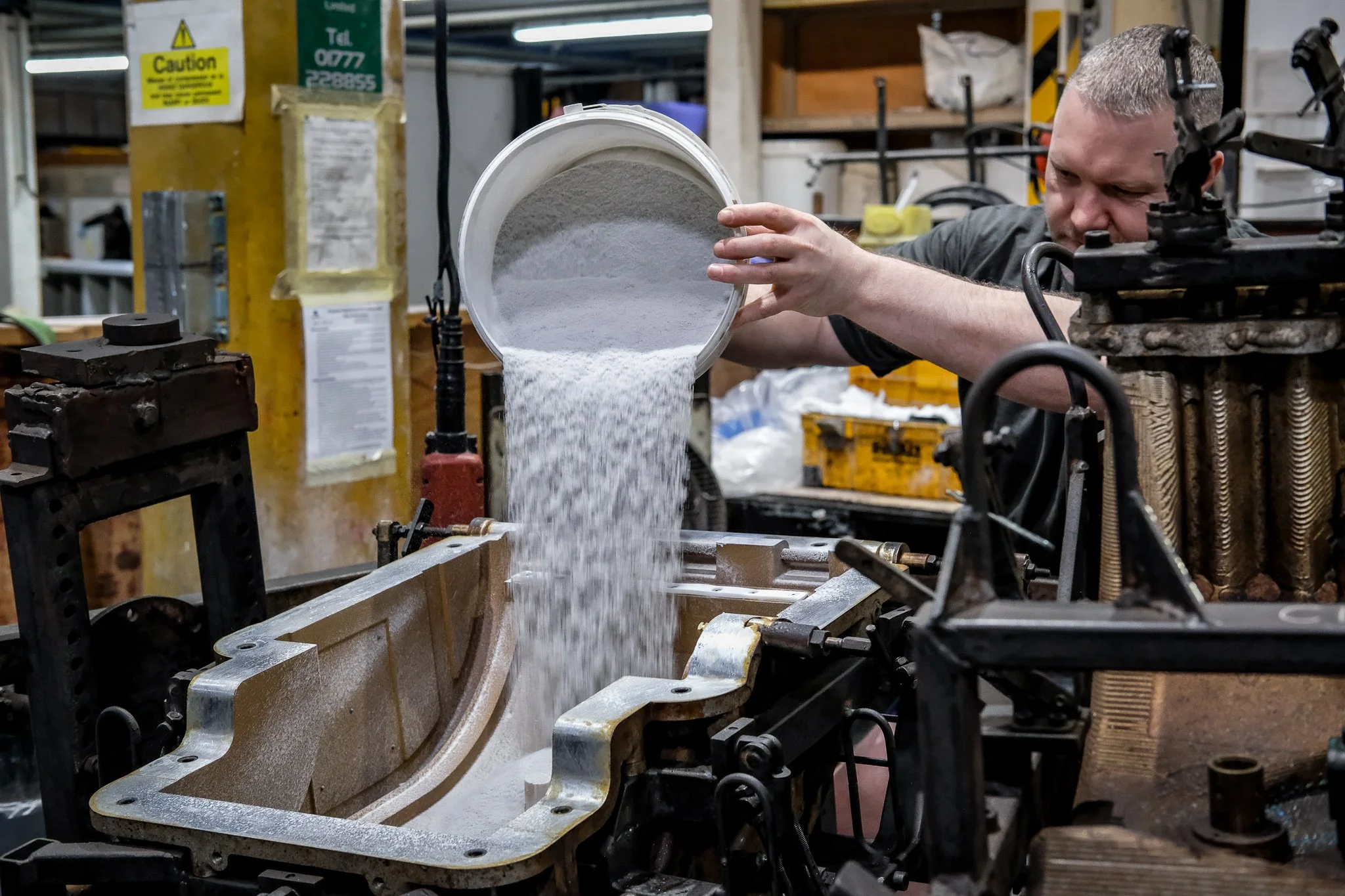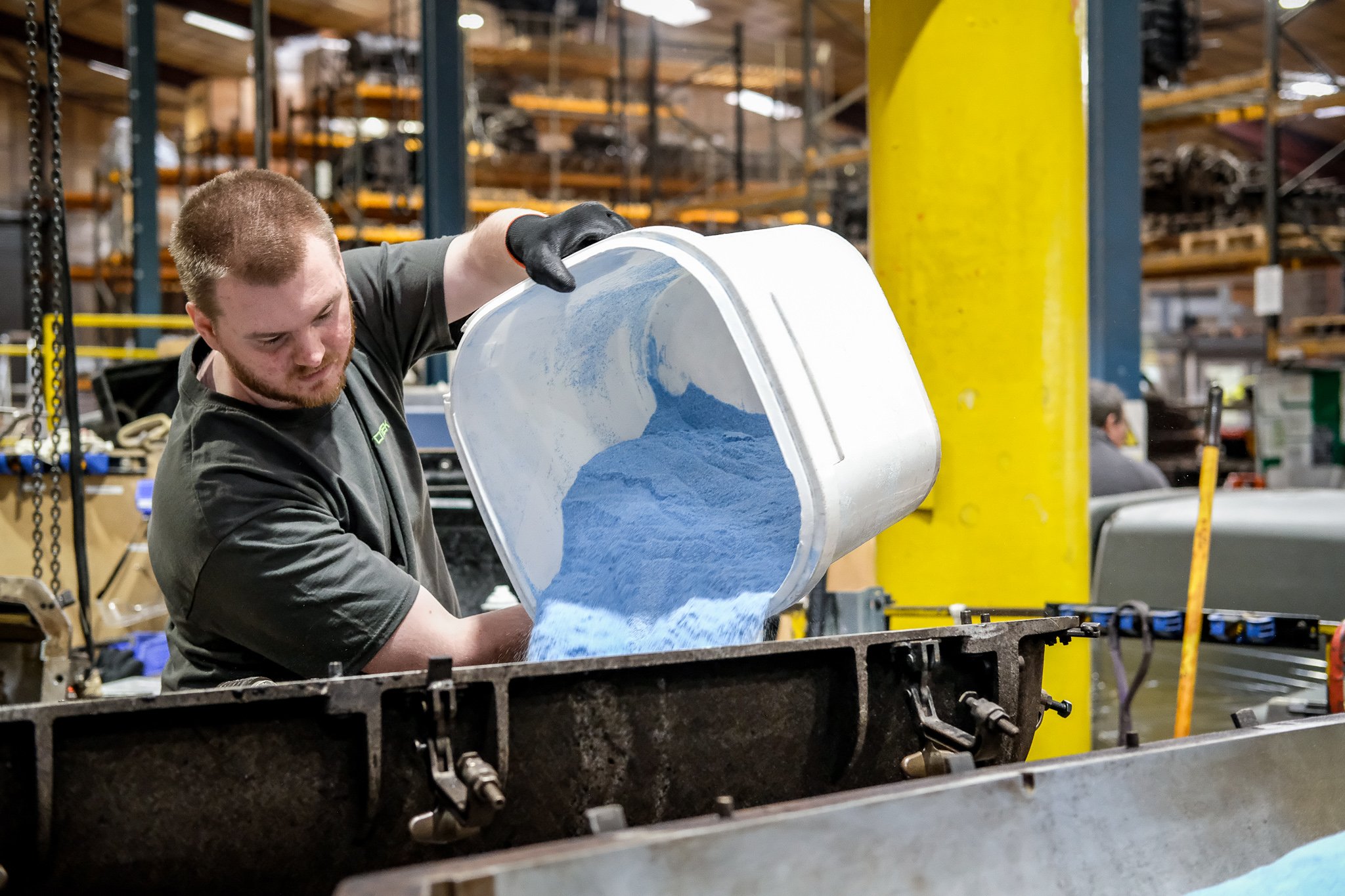Built to Last: Custom Plastic Moulding and Product Durability
If you’re trying to improve product durability or get a better return on investment, but keep hitting the same walls with traditional plastic product manufacturing methods, you’re not alone. Businesses across every sector are under pressure to do more with less: less waste, less energy, less time to market. Meanwhile, consumer expectations are going up, not down.
You need products that perform and suppliers who can meet demanding operational and environmental challenges. Rotational moulding gives you the freedom to design for function and efficiency. It minimises material waste and opens the door to custom plastic moulding shapes and sizes that aren’t feasible with other processes. More importantly, it gives your business a competitive edge.
In industries where performance, longevity, and reliability are non-negotiable, Rototek could be the perfect partner for you. In this blog, we explore how rotomoulding delivers superior product durability and performance.
Understanding Custom Plastic Moulding
Rotational moulding is a manufacturing process that begins with a powdered plastic polymer (such as polyethylene or polypropylene, which have high thermal stability and flow characteristics). This polymer is heated in a custom-designed mould and simultaneously rotated on two axes. As the polymer melts, it coats the interior of the mould, resulting in an even distribution. The mould is removed from the oven and cooled, and the polymer solidifies into the desired shape: a hollow plastic product with consistent wall thickness – no weak seams or weld lines. This uniform structure is behind the overall strength of the final product.
Rotomoulding requires precise control over numerous variables to ensure the quality and durability of the final product. At Rototek, we’ve spent over three decades refining this process to fit a wide range of industrial and commercial needs. Businesses choose rotational moulding for their custom plastic moulding because of its distinct advantages, including the ability to create plastic components to exact specifications that may be challenging or cost-prohibitive with other manufacturing methods.
Rotomoulding is ideal for producing large, complex, and seamless parts with relatively low tooling costs. Once the initial mould is created, there is minimal waste and minimal off-cuts; anything that's ‘wasted’ can be recycled. The nature of the process yields inherently strong plastic products, minimising stress points for enhanced durability. Plastic components are everywhere, but not all are built to last. At Rototek, we specialise in high-performance plastic solutions.
With in-house design capabilities and two UK manufacturing sites, we help businesses across various industries, including automotive, construction, medical, logistics, and more, create durable plastic products that last.
Key Advantages of Custom Plastic Moulding
By combining expert materials, flexible design, and advanced rotomoulding technology, Rototek delivers custom plastic components with unmatched durability. Our rotomoulded parts are built to last, engineered for performance, and backed by three decades of industry expertise. Here are the benefits you can expect from rotationally moulded custom plastic parts.
Strength and durability
Rotational moulding delivers exceptional resilience, producing strong products that withstand heavy use, impact, and environmental stress. The rotomoulding process itself minimises weak points that might occur in assembled or fabricated components. From small 100mm³ containers to 7-metre mouldings, our custom plastic products maintain structural integrity under load and over time, withstanding rigorous use and challenging environments.
Industries demanding durable plastic products rely heavily on rotomoulding. From robust oil and water storage tanks that must withstand harsh environmental conditions to durable marine buoys designed for constant exposure to the elements, the seamless construction and consistent wall thickness provided by rotomoulding are crucial. Even in leisure products like kayaks, the impact resistance and structural integrity achieved through this process ensure longevity and user safety. Industries such as construction, agriculture, and automotive rely heavily on plastic parts that can endure harsh working conditions.
Flexibility and design precision
Rotational moulding offers unparalleled flexibility in creating unique plastic parts, particularly in producing distinctive shapes and forms. Our in-house design team utilises state-of-the-art CAD software to create detailed 3D models of the proposed product, enabling us to visualise it in great detail before making the custom plastic mould and prototypes, and before proceeding to full-scale production. The precision achieved through rotomoulding ensures consistent quality across production runs.
The flexibility of rotomoulding enables us to produce seamless, custom moulded parts with no internal stress points – ideal for containers, housings, ducts, and other applications. The process’s flexibility also facilitates the incorporation of features like inserts, threads, and double walls. Products can be made in a single, seamless piece, rather than assembled from several individually manufactured components, which improves their overall integrity and performance.
This design freedom means any custom plastic moulding can be tailored to meet specific functional requirements, such as heavy-duty impact resistance needed from lightweight vehicle parts like mudguards and bumpers.
Resistance to environmental factors
One of the great features of rotationally moulded plastic products is their resistance to environmental extremes and degradation. They can withstand a wide range of environmental factors, including corrosive chemicals, prolonged UV exposure, extreme temperatures, as well as moisture and humidity. This material versatility is why rotomoulding is ideal for laboratory or industrial settings, particularly for containers involved in handling and transporting chemicals, fuels, or oil. Rotomoulded plastic products also have excellent electrical insulation properties.
Rotational moulding largely uses polyethylene (PE) – a light, versatile resin which is recyclable and comes in varying densities, from low-density (LDPE) to high-density (HDPE). The material's density affects strength, chemical resistance, and impact resistance. The polymer powder can also be formulated with flame retardants, UV stabilisers (to prevent brittleness and colour fading caused by prolonged sun exposure), and other specific additives to ensure longevity and reliable performance in challenging conditions. Marine equipment, for instance, must withstand constant exposure to saltwater and sunlight.
Minimal waste for sustainable efficiency
Rotomoulding is a cost-effective and low-waste production process. The tooling costs are generally lower than those for injection moulding, and the process generates minimal waste, as any unused material can often be recycled back into production. Rototek is further innovating in this area by investing in a fully automated electric heating SMART machine that optimises energy usage, reducing energy consumption and CO₂ emissions compared to gas ovens.
We build durability into both our products and our processes. With options for recycled materials and energy-efficient production methods, rotational moulding supports environmentally responsible manufacturing, ensuring you get high-quality, long-lasting parts with a lower environmental footprint. As a certified B Corp, we’re committed to more sustainable and socially responsible manufacturing practices.
Industries Benefiting from Custom Plastic Moulding
A diverse range of industries relies on rotomoulding design to create high-quality, durable, and high-performing custom moulded parts tailored to their specific needs.
Automotive: Lightweight, impact-resistant parts are essential in modern vehicle design – bumpers, dashboards, and interior trim, for example. Automotive plastic components must endure constant stress and vibration on the road, as well as extreme temperatures. The automotive industry requires durable plastic products that meet both safety and performance requirements, which rotomoulding (and Rototek) delivers.
Construction: Rotationally moulded parts are ideal for the heavy-duty wear and tear and harsh outdoor conditions of construction work and job sites. From plastic pipes to fittings and safety equipment, our high-performance plastic solutions hold up against sun exposure, mechanical stress, and heavy handling.
Medical: Rotomoulded plastic parts are easy to clean, chemically resistant, and designed to withstand repeated sanitation cycles, making them ideal for the medical field, where high hygiene standards are non-negotiable.
Logistics: From pallets to bins, containers, and more, warehousing and transport operations benefit from rotational moulding. These products resist damage from rough handling, as well as exposure to moisture or chemicals, and withstand repeated impacts. They’re highly durable over many cycles of use, making them a cost-effective and long-term solution for busy logistics environments.
Get in Touch with Rototek
At Rototek, we don't just manufacture durable plastic products – we deliver high-performance plastic solutions built to last. If you're looking for custom plastic moulding that’s durable, versatile, and lightweight yet strong, our team is ready to help. To discuss your project or our services, contact us today.



